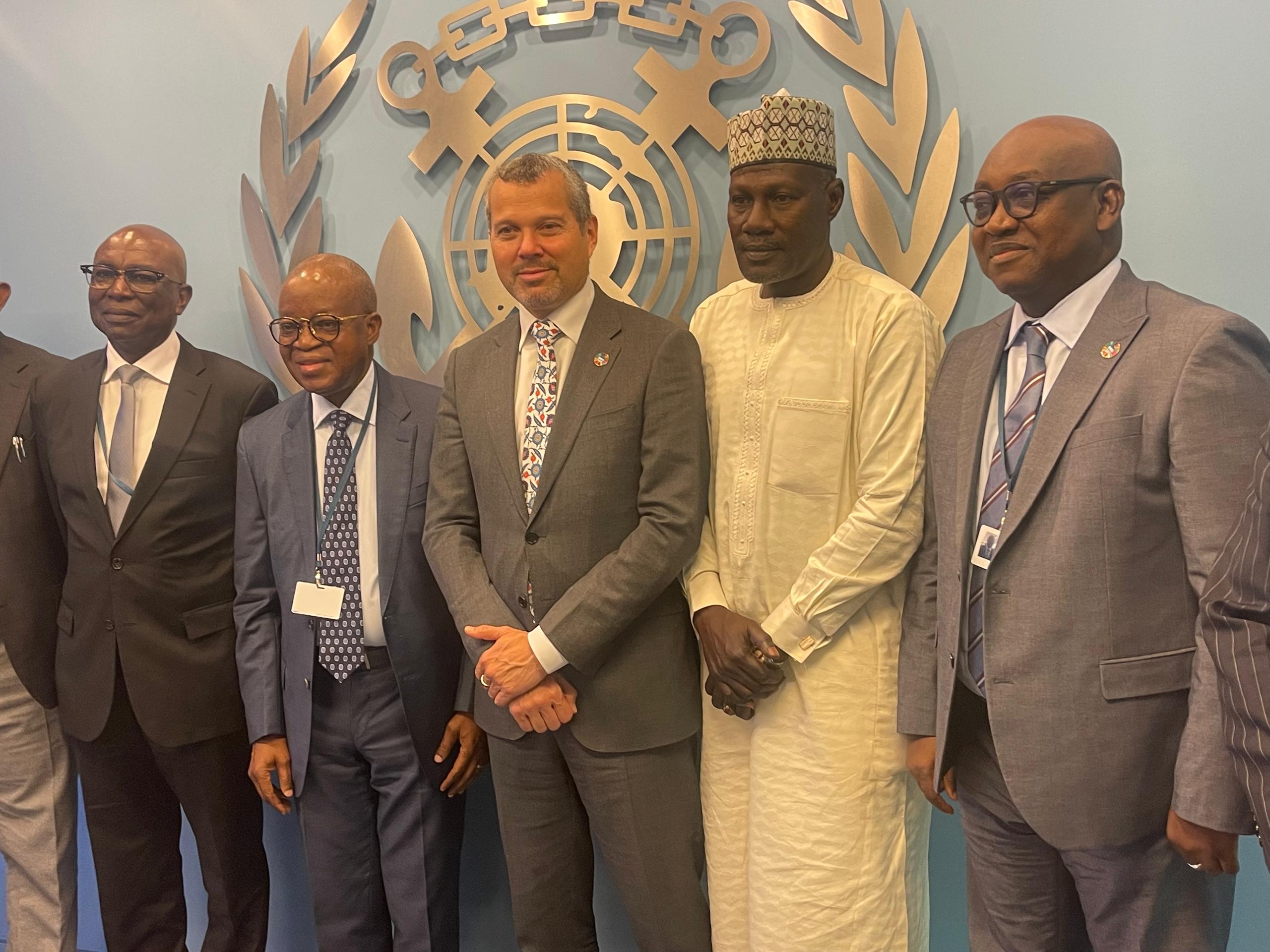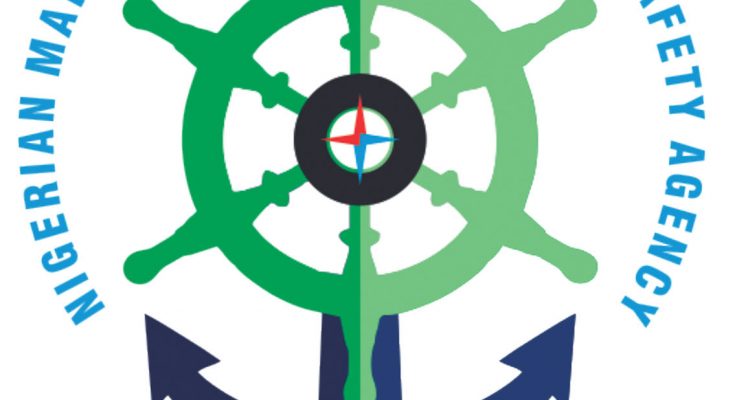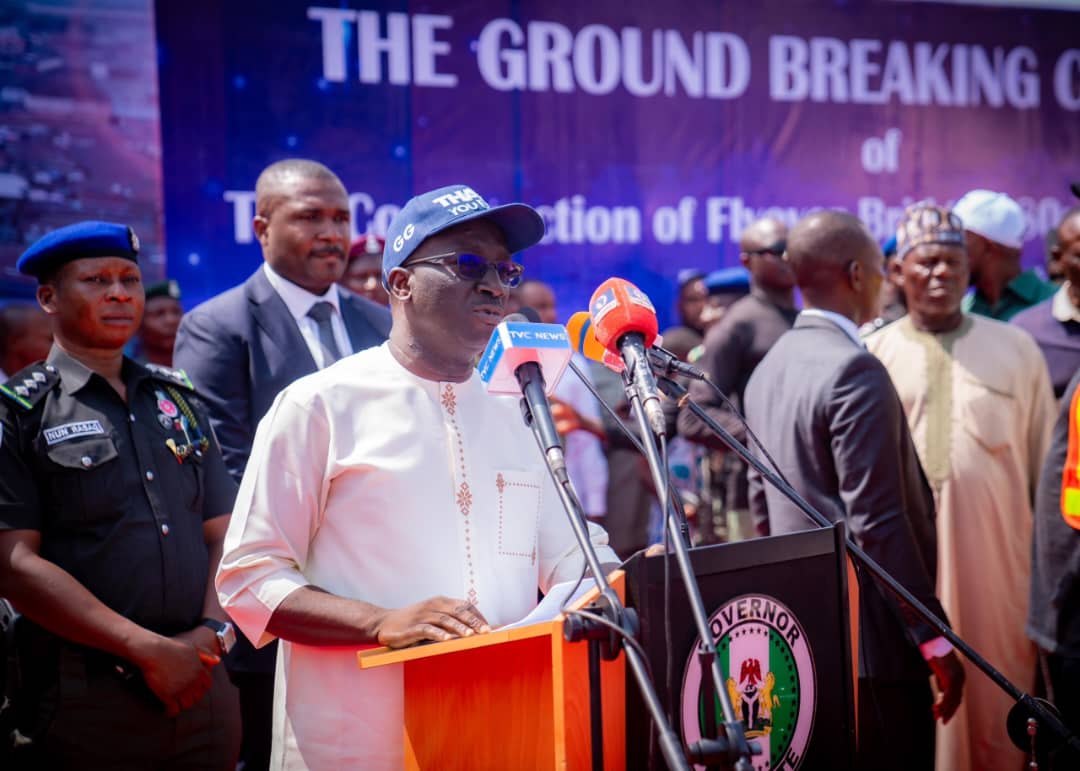Maritime
Maritime: Operators differ over fortune of industry in Nigeria

LAGOS – As the year 2013 finally roll away welcoming 2014, operators in the maritime industry are divided over the prospect of the industry as it affects the nation’s economy.
While some are of the view that the sector will experience a brighter fortune as a result of the building block already in place, other says that the future is bleak because government policies will result in the reversal of little achievements made in the past.
Executive Secretary and Chief Executive Officer, CEO, of the Nigerian Shippers’ Council, NSC, Hassan Bello, said that the sector is bound to experience an increase in port operations, a position he attributed to the developments in the transport sector in general.
Bello explained that the development of transport infrastructure in the transport sector, the rail, road and air, coupled with the reforms in port operations, movement of goods from the ports will become faster.
He also noted that faster cargo clearance from the port will lead to faster ship turn around time and increase in cargo traffic.
 According to him, “Development of transport infrastructure, like the inland waterways which are complimented by the rail as well as the Truck Transit Park (TTP) is some of the infrastructures that will come on stream in 2014. Overall, the contribution of the transport sector to the Nigerian economy will be more tangible and noticeable in the 2014.
According to him, “Development of transport infrastructure, like the inland waterways which are complimented by the rail as well as the Truck Transit Park (TTP) is some of the infrastructures that will come on stream in 2014. Overall, the contribution of the transport sector to the Nigerian economy will be more tangible and noticeable in the 2014.
“Inland waterways is also a veritable medium of transport, we are likely going to see a multi-model transport in the New Year.”
Chairman House Committee on Marine Transport, Ifeyeanyi Ugwuanyi, on his part told Financial Vanguard that the House will be looking at all maritime bills presently before it and sector laws expected to reviewed, to enable the environment for development of the industry.
However, the National President of the Association of Nigeria Licensed Customs Agents, ANLCA, Prince Olayiwola Shittu, warned operators to brace up for “a long night” ahead in the New Year because of recent of policies.
Shittu noted that these recent policies will reverse the gains made in the industry with the concessioning of the nation’s ports. The concession of the port he continued has resulted in increased cargo handling equipment, speedy cargo clearance of goods before the exercise etc.
According to him, the recent import policy as it concerns rice, fish and most especially automobile indicates that government does not think before they act.
The ANLCA boss opined that the new policy will lead to reduction of the operations of the terminal operators and the long run, reduction in staff strength. Shittu noted government should have ensured that the automobile plants were in place, up and running before commencing the implementation of the policy.
He further said that the maritime industry has always been on the receiving end in terms of policies of government. According to him, other sectors of the nation’s economy have enjoyed one form of intervention or the other with a view of improving the fortunes of such sectors.
He also pointed out that transactions in the maritime industry are conducted in naira and dollar and wondered what government expected them to do when a hundred dollars ($100) is heading for two hundred naira (N200).
In his words, “Operators in the maritime industry are in for a long night of inactivity in the industry.”
National Secretary of Nigeria Ship-owners Association, (NISA). Captain Niyi Labinjo, lamented the implementation of the Cabotage Act which is meant to protect the interest of local ship owners.
Labinjo explained that government seem to be more interested in the waiver clause then the enforcement of the Act because of the number of waivers so far granted. He said that the Act was intended to increase human capacity, ship ownership and technology but stressed that these have not been met.
He pointed out that a situation where the nation’s maritime administration, Nigerian Maritime Administration and Safety Agency, NIMASA, abandons its core function of growth and development for revenue generation does not augur well for the industry.
He says he sees no hope for the sector in 2014 and that he cannot make any projection because there is nothing on ground present on which projections for the New Year could be made. Speaking further, the NISA scribe also said even NIMASA cannot do any projection on its core function because this will be based on ship owners’ performance.
– VANGUARD
Maritime
Maritime Governance: Minister Deposits Three Accession Instruments At IMO

The Honourable Minister of Marine and Blue Economy, Adegboyega Oyetola has deposited three Instruments of Accession to IMO Conventions signed by President Bola Ahmed Tinubu with the global body.
He did so on Tuesday, at the headquarters of the International Maritime Organization (IMO), which acts as the repository for these conventions.
This move, coming a few weeks after Nigeria declared its intention to contest election for a seat on the IMO Council, is expected to enhance Nigeria’s maritime governance and align its practices with international standards, promoting maritime safety, security, and environmental protection.
Shortly after the presentation ceremonies, Oyetola informed the IMO Secretary General, Arsenio Dominguez, of the President’s commitment to ensuring that Nigeria aligns with international maritime standards regarding maritime safety, security, and sustainable marine practices.
ALSO READ: NNPCL Launches Utapate Crude Oil Blend, Eyes Production Expansion In 2025
He also called on the IMO to extend technical support to Nigeria.
In his words, “These instruments, duly acceded by His Excellency, the President of the Federal Republic of Nigeria, signify Nigeria’s continued commitment to aligning with international maritime standards, ensuring maritime safety and security, and promoting sustainable marine practices.
“We hereby request tailored technical cooperation under the Integrated Technical Cooperation Programme (ITCP) to enhance Nigeria’s compliance with IMO conventions and improve our maritime governance and implementation of the instruments we submitted today.”
On his part, Dominguez, acknowledged with appreciation the formal deposition of the Instruments of Accession, stating that it underscores Nigeria’s steadfast commitment to aligning with global maritime standards.
“I congratulate Nigeria for its exceptional efforts in acceding to these six critical IMO instruments. I encourage continued momentum by securing presidential assent to additional key conventions. We at the IMO remains fully committed to supporting Nigeria through technical cooperation and capacity-building initiatives to ensure the successful implementation of these instruments,” he stated.
The instruments Oyetola handed over to Dominguez include the instrument of accession to the 2005 Protocol to the Convention for the Suppression of Unlawful Acts against the Safety of Fixed Platforms Located on the Continental Shelf (SUA Protocol 2005), the instrument of accession to the International Convention on Standards of Training, Certification, and Watchkeeping for Fishing Vessel Personnel (STCW-F), and the instrument of accession to the Protocol Relating to Intervention on the High Seas in Cases of Pollution by Substances Other Than Oil (Intervention Protocol 1973).
It was gathered that three other Instruments of Accession signed by President Tinubu are undergoing further steps to complete the processes for their deposit.
Maritime
Capacity Dev’t: NIMASA Assures On Cabotage Vessel Financing Fund

Funds accrued under the Cabotage Vessel Financing Fund (CVFF) are intact and currently held with the Central Bank of Nigeria (CBN) under the Single Treasury Account (TSA).
This assertion was made by the Nigerian Maritime Administration and Safety Agency (NIMASA), in a statement in Lagos on Tuesday.
The clarification became necessary to address “a misleading publication alleging that funds have disappeared from the CVFF account”.
ALSO READ: Okpebholo Hits Ground Running, Flags Off Edo’s 1st Flyover Bridge
The statement reads, in part, “The report of a missing money is both misleading and false.
“For the record, the Cabotage Vessel Financing Fund, securely held in the NIMASA account at the Central Bank of Nigeria (CBN), remains intact. There has been no disappearance of funds, and no illegal transactions, as the article suggests. This misinformation is a figment of the authors imagination, aimed at undermining NIMASA’s integrity, and mislead the public about the Agency’s operations.
“The Management of NIMASA will ensure that the CVFF is utilised in line with its statutory purpose. NIMASA Director General, Dr Mobereola has assured stakeholders of the safety of funds under the CVFF.”
The statement cited the DG thus, “Let us be clear that the CVFF account at the Central Bank of Nigeria is safe, intact, and secure. We at NIMASA will continue to manage it with the utmost responsibility, and there are no irregularities or illegal activities surrounding the funds. I urge the public to disregard this false narrative and to continue trusting the Agency’s ability to uphold the integrity of Nigeria’s maritime sector”.
It was gathered that the CVFF is a fund established under section 42 of the Coastal and Inland Shipping (Cabotage) Act 2003 to promote the development of indigenous ship acquisition capacity and to provide credit facilities to local maritime operators.
The NIMASA, assured of its commitment “to transparency, accountability, and the advancement of Nigeria’s maritime sector.”
Maritime
Okpebholo Hits Ground Running, Flags Off Edo’s 1st Flyover Bridge

Edo State Governor, Senator Monday Okpebholo appears eager to deliver the dividends of democracy to his constituents.
This is discernible from the frenzy of activities being witnessed in his first few days on the job, including dissolution of boards, constitution of investigative panels, flagging off of infrastructure projects, among others.
In the bid to address the perennial road traffic congestion negatively impacting economic and social activities in Benin City, the state capital, Gov Okpebholo on Wednesday flagged off the construction of a flyover bridge.
Biztellers reports that the flyover bridge around the popular Ramat Park in the city centre is the first of such in the history of Edo State.
ALSO READ: Tinubu Seeks ₦1.767tn Loan to Tackle 2024 Budget Deficit
The Edo State Government made the disclosure in its verified handle on micro-blogging site, X, on Wednesday.
It wrote, “Traffic decongestion: Gov Okpebholo flags off first flyover in Edo.
“Edo State Governor, Sen. Monday Okpebholo has flagged off the construction of a flyover bridge at Ramat Park, Benin City, the State Capital, as part of immediate efforts to reduce traffic congestion in the city.”











